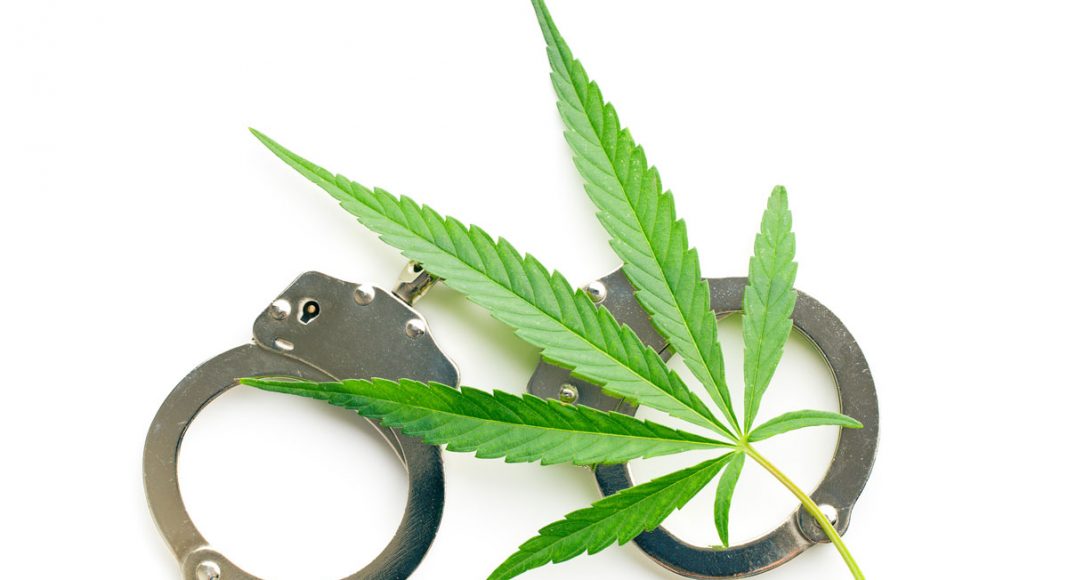While the bulk of the cannabis community remains convinced that President Trump is pro-marijuana, it has become painfully evident in recent months that his administration is still exercising prohibition tendencies. This is especially true when it comes to Trump’s agenda to rid the nation of immigrants. In fact, it was just last week that U.S. officials released some new guidance for immigrants working in the cannabis industry. The document explains that working in weed, regardless if it is in a legal state or not, could disqualify them from citizenship should they ever apply.
It seems that Trump has found another way to make life hard for immigrants trying to make their way in the land of the free – kill any and all prospect of them ever achieving naturalization if they have involvement in “marijuana-related activities.” The latest guidance from the U.S. Citizenship and Immigration Services (USCIS) indicates that immigrants choosing to work in the cannabis trade could have some troubles when it comes to achieving citizenship in the future. The agency said that any connection to pot (a criminal offense or even employment) will be viewed as a moral blemish.
RELATED: Are ICE Agents Using Marijuana As An Excuse To Arrest Immigrants?
Although several states have legalized the leaf for medicinal and recreational purposes, the federal government still considers weed an illegal drug. Therefore, it doesn’t matter if an immigrant applying for citizenship has a smear on his record for drug trafficking or he’s employed by a state-legal marijuana business, this activity is viewed in the same light. Unfortunately, this means that people who have held green cards for decades can be denied naturalization as long as Uncle Sam continues to ban marijuana at the national level.
“Marijuana remains illegal under federal law as a Schedule I controlled substance regardless of any actions to decriminalize its possession, use, or sale at the state and local level,” USCIS spokesperson Jessica Collins said in a statement. “Federal law does not recognize the decriminalization of marijuana for any purpose, even in places where state or local law does.”
While there hasn’t been much coverage on this subject over the years, marijuana has become a roadblock for some of those seeking U.S. citizenship for some time. One of the most recent cases involves a Colorado man named Oswaldo Barrientos. The man has lived in the United States all of his life, graduated high school and has worked on a green card since he was a teenager. But he was denied citizenship last November just because he has been employed with a Denver-based cannabis cultivation center for the past five years. The situation prompted Denver Mayor Michael Hancock to reach out to U.S. Attorney William Barr earlier this month in hopes of forging change.
“We strongly believe that such guidance is imperative to ensuring consistent implementation and enforcement of state marijuana laws and regulations in the more than 30 U.S. states that have chosen to fully or partially legalize cannabis,” Hancock wrote. “Denver understands the need for federal laws and regulations regarding citizenship and immigration, but we are seeing the heartbreaking effects that those federal laws and regulations are having on our residents.”
Well, Hancock received his guidance. The gist of it is federal law prevails, even in the situation of legal marijuana.
RELATED: Why Is California Deporting People For Using Marijuana?
“U.S. Citizenship and Immigration Services is required to adjudicate cases based on federal law,” Collins said. “Individuals who commit federal controlled substance violations face potential immigration consequences under the Immigration and Nationality Act (INA), which applies to all foreign nationals regardless of the state or jurisdiction in which they reside.”
Legal experts say it is likely that more immigrants connected to the cannabis industry have encountered this problem, but they do not have the resources for an appeal. Not that it would matter. The best course of action, at least until the federal government reconsiders its position on marijuana, is for immigrant pot workers to wait it out. There is no sense in taking the leap toward naturalization until the conflict between state and federal marijuana law is hashed out for good.


